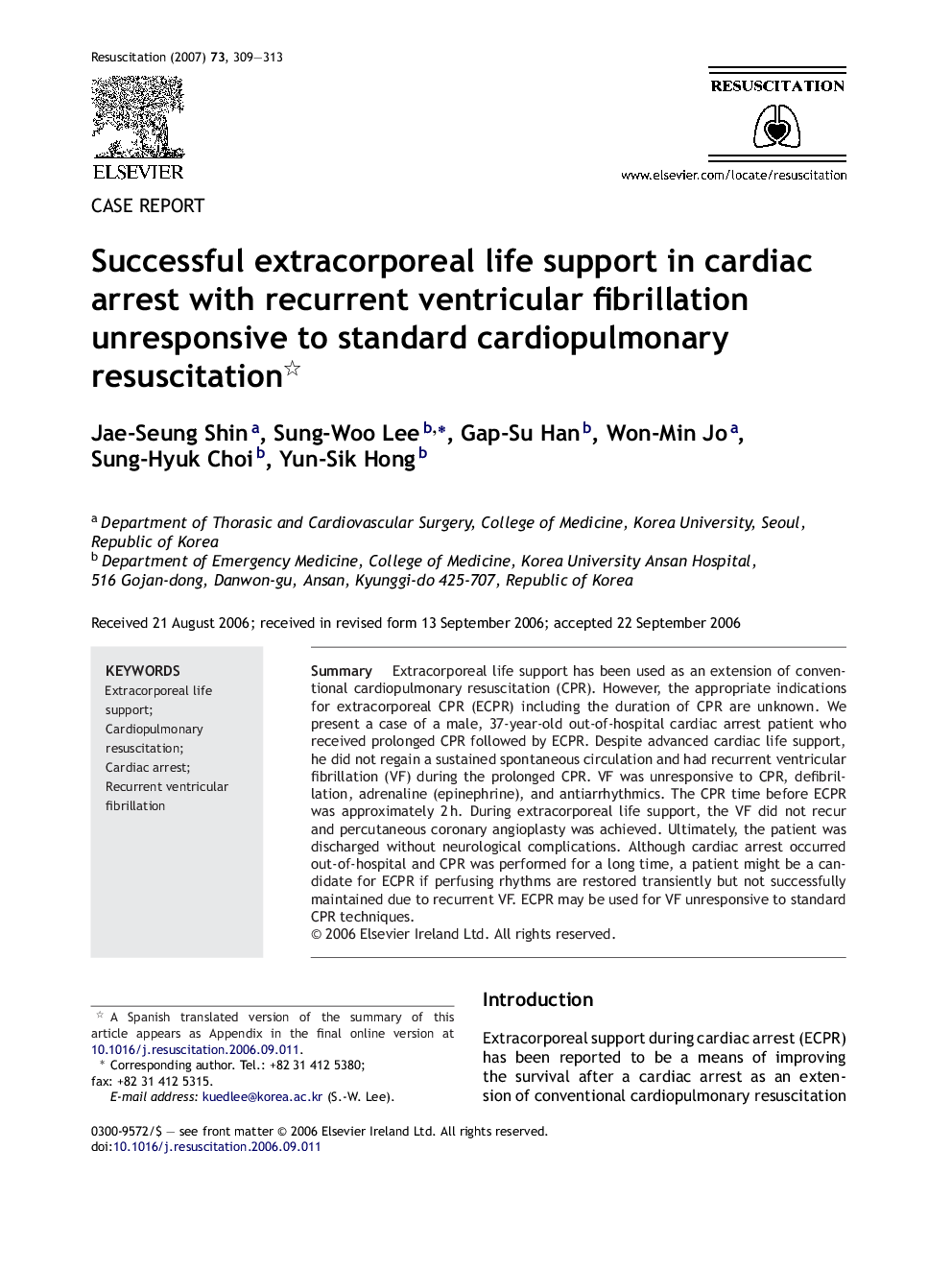| Article ID | Journal | Published Year | Pages | File Type |
|---|---|---|---|---|
| 3010101 | Resuscitation | 2007 | 5 Pages |
SummaryExtracorporeal life support has been used as an extension of conventional cardiopulmonary resuscitation (CPR). However, the appropriate indications for extracorporeal CPR (ECPR) including the duration of CPR are unknown. We present a case of a male, 37-year-old out-of-hospital cardiac arrest patient who received prolonged CPR followed by ECPR. Despite advanced cardiac life support, he did not regain a sustained spontaneous circulation and had recurrent ventricular fibrillation (VF) during the prolonged CPR. VF was unresponsive to CPR, defibrillation, adrenaline (epinephrine), and antiarrhythmics. The CPR time before ECPR was approximately 2 h. During extracorporeal life support, the VF did not recur and percutaneous coronary angioplasty was achieved. Ultimately, the patient was discharged without neurological complications. Although cardiac arrest occurred out-of-hospital and CPR was performed for a long time, a patient might be a candidate for ECPR if perfusing rhythms are restored transiently but not successfully maintained due to recurrent VF. ECPR may be used for VF unresponsive to standard CPR techniques.
